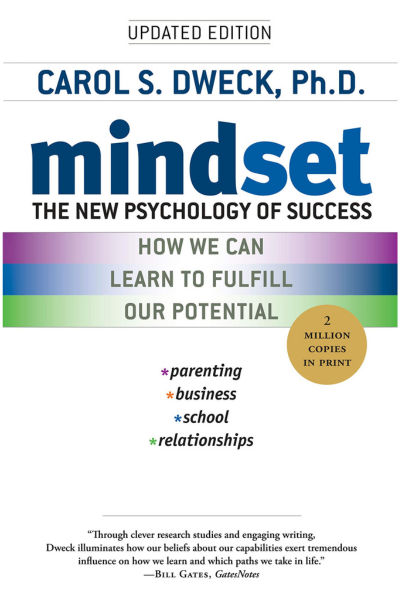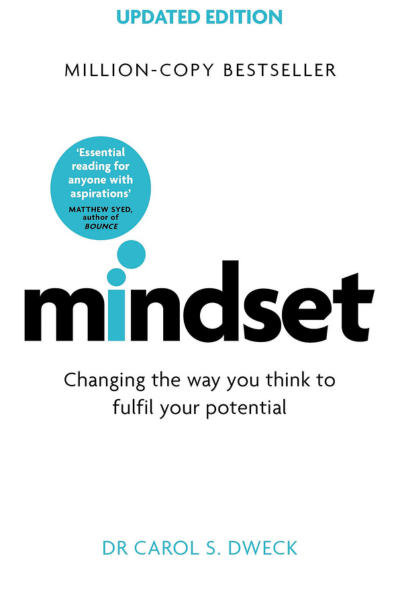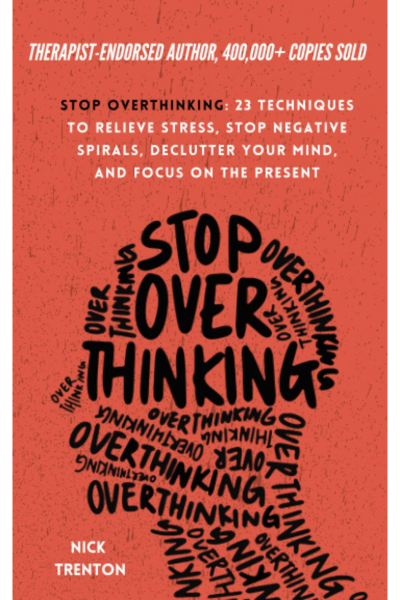Content Summary
In the journey of life, there exists an intangible force that serves as a driving factor behind our accomplishments and happiness - mindset. The way we perceive the world, handle challenges, and approach opportunities significantly impacts various aspects of our lives.
A positive and growth-oriented mindset can be the key to personal growth, successful relationships, a balanced lifestyle, and a flourishing career or business. In this article, we delve into the significance of mindset in these four critical areas.
Personal Growth
Your mindset shapes your beliefs, attitudes, and behaviors, playing a pivotal role in your personal development. A growth mindset, as coined by a psychologist
Carol Dweck, is the belief that abilities and intelligence can be cultivated through effort and perseverance.
Embracing a growth mindset allows you to see failures and setbacks as learning opportunities rather than insurmountable obstacles. This outlook enables you to step out of your comfort zone, take on new challenges, and continuously seek self-improvement.
Successful Relationships
Healthy and successful relationships thrive on effective communication, empathy, and understanding. A mindset that fosters emotional intelligence and open-mindedness is the foundation of such relationships.
When you adopt a mindset of empathy and respect for others' perspectives, you become a better listener and collaborator. This mindset empowers you to resolve conflicts with compassion and find common ground, strengthening your connections with family, friends, and colleagues.
Balanced Lifestyle
The concept of work-life balance is not just about dividing time between professional and personal pursuits; it's about maintaining a balanced mindset too. A mindset that prioritizes well-being and fulfillment over constant productivity leads to a more balanced lifestyle.
This involves recognizing the importance of rest, relaxation, and self-care alongside professional ambitions. A balanced mindset helps you set boundaries, manage stress, and create harmony between various aspects of your life.
Successful Career or Business
The link between mindset and career success is undeniable. In the professional realm, individuals with a positive and growth-oriented mindset are more likely to embrace challenges and take calculated risks.
Such individuals view failures as opportunities to learn and innovate, allowing them to bounce back stronger from setbacks. A growth mindset encourages a thirst for knowledge and continuous improvement, fostering adaptability and resilience in a rapidly evolving work environment.
For entrepreneurs and business leaders, a growth mindset is particularly essential. It encourages a willingness to innovate, explore new markets, and adapt business strategies to changing circumstances.
Furthermore, a positive mindset can positively influence team dynamics, creating a work culture that nurtures creativity, collaboration, and employee satisfaction.
Most FAQs About Mindset and the Psychology of Success:
What is a Growth Mindset?
A growth mindset is a concept developed by psychologist Carol Dweck, introduced in her book "Mindset: The New Psychology of Success." It refers to the belief that one's abilities and intelligence can be developed and improved through effort, learning, and perseverance.
Individuals with a growth mindset understand that their qualities are not fixed traits but rather can be cultivated and developed over time.
Key Characteristics of a Growth Mindset:
Embracing Challenges: People with a growth mindset see challenges as opportunities for learning and growth. Instead of shying away from difficult tasks, they approach them with enthusiasm and a willingness to learn from their experiences.
Persistence: Individuals with a growth mindset understand that achieving mastery or success often requires time and effort. They are more likely to persist in the face of setbacks and failures, viewing them as opportunities to learn and improve.
Effort as the Path to Mastery: People with a growth mindset believe that effort is the pathway to success. They understand that hard work, practice, and dedication can lead to significant improvements in their skills and abilities.
Learning from Criticism: Individuals with a growth mindset are open to feedback and constructive criticism. They view criticism not as a personal attack but as valuable input that can help them grow and develop further.
Inspired by Others' Success: Instead of feeling threatened by the success of others, those with a growth mindset are inspired by it. They see others' achievements as proof that similar accomplishments are attainable through hard work and effort.
Redefining Failure: People with a growth mindset redefine failure as a temporary setback or a learning opportunity. They don't see failure as a reflection of their abilities but as a chance to learn, regroup, and improve.
Emphasizing the Journey: Those with a growth mindset focus on the process and journey of learning rather than just the end result. They understand that growth and development occur over time and are not solely determined by immediate outcomes.
Importance of a Growth Mindset:
Cultivating a growth mindset is crucial for personal development, learning, and achieving success. It can lead to increased resilience, adaptability, and a willingness to embrace challenges.
People with a growth mindset are more likely to take risks, explore new opportunities, and continuously seek self-improvement. This mindset not only enhances academic and professional achievements but also fosters healthier relationships and a more positive outlook on life.
It's important to note that having a fixed mindset, where one believes that abilities are innate and unchangeable, can limit personal growth and hinder reaching one's full potential.
However, the good news is that mindset is not fixed; it can be changed and developed. By adopting a growth mindset and recognizing the power of effort and perseverance, individuals can unlock their potential and achieve greater success and fulfillment in various aspects of life.
What is a Fixed Mindset?
A fixed mindset is the opposite of a growth mindset. It is a belief that one's abilities, intelligence, and qualities are static and unchangeable. Individuals with a fixed mindset believe that their skills and talents are inherent traits that cannot be significantly developed or improved through effort or learning.
They tend to see their capabilities as set in stone, leading to certain attitudes and behaviors that can limit their potential for growth and development.
Key Characteristics of a Fixed Mindset:
Avoiding Challenges: People with a fixed mindset often avoid challenges or situations where they might struggle. They fear that failure could be a sign of their inherent limitations, leading them to stick to tasks where they feel comfortable and confident.
Viewing Effort as Fruitless: Individuals with a fixed mindset may believe that putting in effort won't make a substantial difference in their abilities. They may think that if they have to work hard at something, it means they lack natural talent.
Fear of Failure: Those with a fixed mindset fear failure because it is seen as a reflection of their innate abilities. As a result, they may avoid taking risks and trying new things to protect their self-image.
Disregarding Feedback: People with a fixed mindset might be resistant to feedback or constructive criticism. They may perceive it as a personal attack rather than an opportunity for growth.
Feeling Threatened by Others' Success: Individuals with a fixed mindset may feel threatened or envious of others' achievements because they see success as a limited resource. They might interpret someone else's success as evidence of their own inadequacy.
Defining Themselves by Results: Those with a fixed mindset tend to define their self-worth based on external outcomes and accomplishments. Success validates their sense of competence, while failure can lead to feelings of inadequacy.
Believing in a "Natural Talent": People with a fixed mindset often attribute success solely to natural talent rather than acknowledging the role of effort, learning, and practice in achieving that success.
Impact of a Fixed Mindset:
A fixed mindset can significantly hinder personal growth, learning, and achievement. By believing that their abilities are fixed, individuals limit themselves from reaching their full potential.
They may miss out on valuable opportunities for self-improvement and skill development. A fixed mindset can lead to feelings of helplessness and resignation when faced with challenges or setbacks.
Fortunately, mindset is not set in stone, and individuals can shift from a fixed mindset to a growth mindset through self-awareness and intentional efforts.
Recognizing the power of effort, learning, and resilience can help individuals break free from the constraints of a fixed mindset and embrace personal development and growth.
Embracing a growth mindset can lead to increased motivation, adaptability, and a willingness to embrace challenges, ultimately paving the way for greater success and fulfillment in life.
How to Change a Fixed Mindset to a Growth Mindset?
Cultivating a growth mindset from a fixed mindset is a powerful transformation that can lead to personal growth, increased resilience, and a more positive outlook on life.
Here are some practical steps to help shift from a fixed mindset to a growth mindset:
Self-awareness: Begin by recognizing and acknowledging the areas in which you may have a fixed mindset. Reflect on your beliefs about your abilities, talents, and intelligence. Be honest with yourself about the limitations these beliefs may be imposing on your personal growth.
Embrace challenges: Start seeking out challenges and view them as opportunities for growth and learning. Step out of your comfort zone and take on tasks or activities that you may have previously avoided due to fear of failure.
Value effort and persistence: Recognize and appreciate the value of effort and hard work. Understand that progress and improvement often come through consistent practice and dedication.
Redefine failure: Shift your perspective on failure. Instead of viewing it as a reflection of your inherent abilities, see it as a natural part of the learning process. Failure provides valuable lessons and opportunities for growth.
Learn from setbacks: When faced with obstacles or failures, analyze what went wrong and identify areas for improvement. Embrace a problem-solving mindset and use setbacks as stepping stones to success.
Seek feedback: Be open to feedback from others, and use it as a tool for self-improvement. Listen to constructive criticism with an open mind and consider how it can help you grow.
Replace negative self-talk: Be aware of your inner dialogue and challenge negative thoughts about your abilities. Replace self-limiting beliefs with positive affirmations that promote growth and development.
Model growth-oriented behavior: Surround yourself with individuals who have a growth mindset and observe how they approach challenges and setbacks. Learn from their behaviors and attitudes.
Emphasize the process: Shift your focus from solely obsessing over outcomes to valuing the process of learning and improvement. Celebrate the effort and progress you make along the way.
Cultivate a love for learning: Develop a curiosity for new ideas and a passion for learning. Engage in continuous learning and explore subjects that interest you.
Set realistic goals: Set specific, achievable goals that align with your desire for growth and improvement. Break them down into smaller steps, and celebrate your progress as you reach each milestone.
Practice self-compassion: Be kind to yourself and acknowledge that growth takes time and effort. Don't be overly critical or judgmental of your mistakes; instead, view them as opportunities to learn and do better.
Remember that shifting from a fixed mindset to a growth mindset is a gradual process that requires consistent effort and patience. Be gentle with yourself and stay committed to adopting a growth-oriented perspective.
Over time, you will find that this mindset shift opens doors to new opportunities, enhances your personal development, and empowers you to achieve greater success in various aspects of life.
Author's Choice of Self-Improvement Tools about Mindset:



Conclusion
In conclusion, mindset acts as the driving force behind personal growth, successful relationships, a balanced lifestyle, and a thriving career or business. Embracing a growth-oriented and positive mindset can transform how we approach challenges and opportunities in every aspect of our lives.
By recognizing the power of our beliefs and attitudes, we can cultivate resilience, empathy, and adaptability - essential qualities for achieving happiness and success.
Whether it's overcoming obstacles, building meaningful connections, maintaining a sense of equilibrium, or reaching new heights in our professional pursuits, our mindset is the key that unlocks the door to a fulfilling and prosperous life.
Relevant Reads>>>













